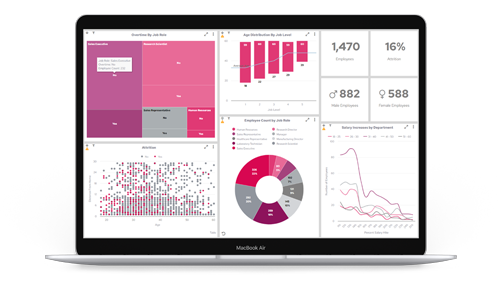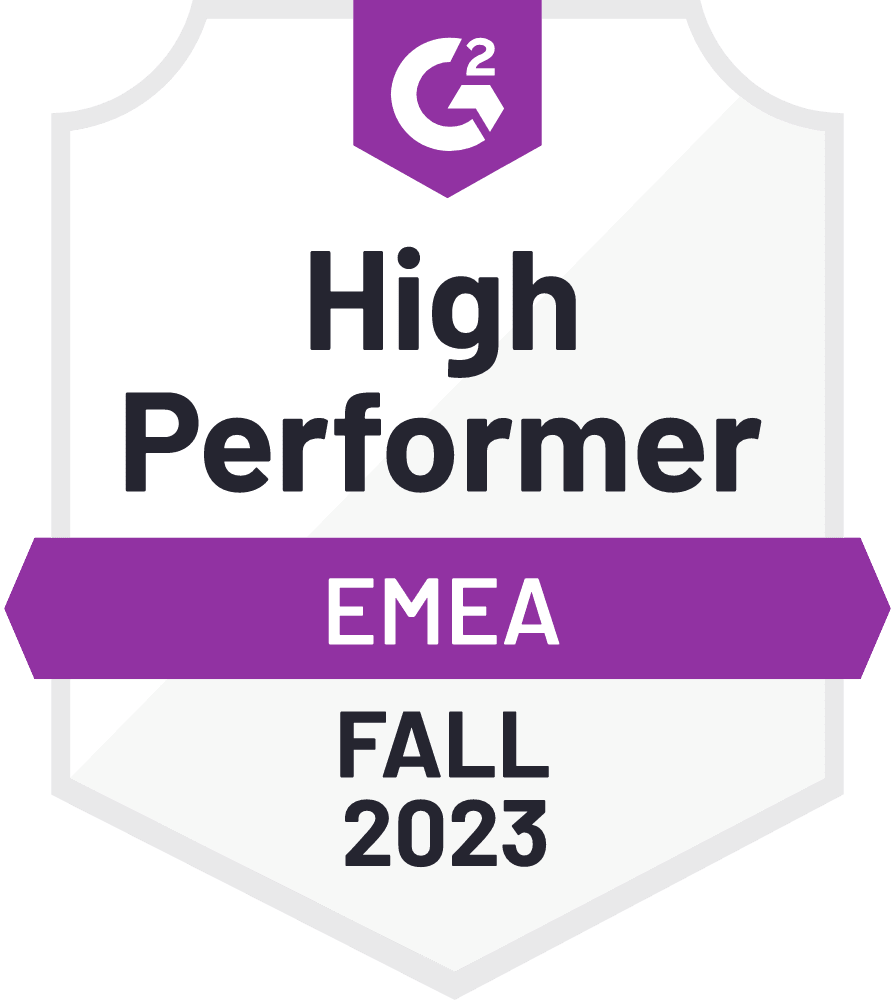Support Level Responsibility
Product Support
Panintelligence provides Level-3 support to organisations that have purchased directly from Panintelligence.
Level 3 Support will be provided in respect of the latest version of the software available to download from panintelligence, and the immediate version prior to that only. We do not provider support on versions outside of this range, and therefore you may need to upgrade to a supported version to troubleshoot support queries.
Unless by prior agreement e.g. During Demos or Proof of Concept deliveries:
- Panintelligence does not provide Level-1 and Level-2 technical support.
- Panintelligence does not provide support to indirect customers or End Users.
Customers are required to provide Level-1 and Level-2 support to their channel partner &/or End User in order to qualify all technical support requests prior to engaging Panintelligence Technical Support. Unqualified requests may be sent back to the customer for further evaluation.
Definitions of Support Levels
Level-1 Technical Support consists of basic End User questions that can usually be answered by referring to the product documentation, Panintelligence website, or Knowledge Base.
Example: A question such as “How do I reset my password?” can be answered by referencing the product documentation.
Level-2 Technical support (also known as application support) consists of supporting the architecture and configuration of the deployed software, alongside its internal parameters and data connections. Attempting to reproduce issues with a duplication of the Customer and/or End User environment is expected, including but not limited to collecting and investigating log files, qualifying the support request particulars and fixing configuration / installation / deployment errors.
Level 2 Technical Support is usually performed by the Customer that purchased products directly from Panintelligence when no solution could be found through Level-1 technical support. Level 2 Technical Support skills are usually gained by attending a Panintelligence Pi Academy course on-line or in person, or tailored courses can be provided.
Example Question: “My chart is showing incorrect values when I apply a filter to it, can you help fix it?”
Level-3 Technical Support is performed by Panintelligence Technical Support, after Level-1 and Level-2 technical support efforts are unable to resolve the support request.
Panintelligence Technical Support will act as the single point of contact to work with the Reseller/OEM and provide communications throughout the process. Communications to the End user should be coordinated through the Reseller / OEM.
Level-3 technical support may also include the creation of software fixes by the Panintelligence Development team as and when determined necessary by Panintelligence.
Support for Third-Party Products/Open Source Software
Third-party products are products not manufactured by Panintelligence.
Unfortunately, Panintelligence are not responsible for third party hardware or software, and therefore we are unable to provide support on such elements of a customer deployment.
Third party software or code is however included or bundled with some of our Panintelligence offerings.
In circumstances where in-depth technical skills to diagnose third party software problems is required. We will refer to those third party software vendors for technical support.
Pi SaaS Support
Pi SaaS SLA’s
Guaranteed Uptime - Panintelligence provides a 99% uptime commitment for customers on the PiSaaS subscription.
Downtime is the overall number of minutes Pi SaaS was unavailable during a defined period of time, e.g. calendar month.
Panintelligence calculates unavailability using server monitoring software to measure the server side error rate, ping test results, web server tests, TCP port tests and website tests.
Downtime excludes the following:
- Slowness or other performance issues with individual features
- Issues that are related to external applications and data sources or third parties
- Any products or features identified as pilot, alpha, beta or similar
- External network or equipment problems outside of our reasonable control, such as bad routing tables between your internet service provider (ISP) and our server or software issues on local machines
- Scheduled downtime for maintenance
Scheduled downtime
Sometimes we need to perform maintenance to keep Pi SaaS working smoothly. If scheduled downtime is necessary, we’ll give you at least 48 hours’ advance notice.
Support Hours
We provide PiSaaS support during our standard operating days and times, as referenced on this page.
Usage limits
Single instance 2 CPU. 20GB Data limit. Single region. Maximum 10% concurrent users.
For multi instance, multi region or plus 100 concurrent users, contact Panintelligence support for pricing and bespoke SLAs
Accessing Panintelligence Support
Before contacting Panintelligence Technical Support, please make sure that all support requests have been qualified by your service desk and that all Level-1 and Level -2 investigation paths have been exhausted.
Unqualified requests may be returned for further evaluation.
You may contact the Panintelligence Support desk by submitting an incident via the web at https://panintelligencesupport.zendesk.com/hc/en-us using the Submit A Request option. This is accessible 24x7 or by placing a call during Panintelligence scheduled business hours.
Telephone Support
Technical Support contact number: +44 (0)113 539 5777
Web Support
Panintelligence Support encourages online entry of incidents and requests a method that enables our Support analysts to quickly begin analysing the issue and researching the resolution.
Online access can be requested through the Panintelligence support team. In addition to logging a new incident through the Support Portal, the Licensee can access other Support services and capabilities including:
- Ability to view and update Licensee’s Support incident history and status
Note: It is strongly recommended that any email or web-initiated technical support requests for urgent problems be followed up with a phone call to ensure the shortest possible response time.
Email support
Initiating a support request via email is possible for all Panintelligence modules.
Technical Support Email address: support@panintelligence.com
Note: When opening incidents via email, it will facilitate the processing of your incident if the subject line is in the following format:
Subject Line: OEM / Reseller and Customer Name – Product and Version – Brief Description of Problem
It is important that as much information as possible is included in the email to help our support team deal with your query as quickly as possible, therefore the following information is particularly useful to us;
- OEM / Reseller and Customer Name
- Product & Release Version In Use
- What The Issue Is
- When It Started Happening
- If It's Affecting All Users
- If It Can It Be Recreated & Steps Taken To Recreate
- If There Has There Been Any Recent Changes To The Deployment or Dashboard Configuration
- Providing Screenshot and Log Files can help improve resolution times too
Surveys
When a Technical Support Case is closed, the Case Management system sends an email to the customer asking them to participate in a survey of their experience with Panintelligence Technical Support. Customer feedback, both positive and negative, is strongly encouraged and appreciated.
Request Types
Enhancement Requests
Enhancement Requests are additional product features suggested by customers to make the product easier to use or add new functionality. Enhancement Requests are tracked in the same Panintelligence issue tracking system as product defects and are implemented in a priority order.
If an enhancement request is urgent, then contact your Account Manager to discuss a possible CPO (Custom Product Opportunity), this service will be chargeable.
For any enhancement request, Panintelligence Technical Support may request the following information:
- Customer Name
- Total number of users using the product
- Percentage/Number of users affected by the issue
- Frequency of issue
- User Impact Statement (e.g. user experience, performance) (one paragraph)
- Business Impact Statement (e.g. regulatory compliance, revenue impact - please quantify as much as possible) (up to three paragraphs)
- Business impact level: (Low, Medium, High, Critical)
- Low Impact is defined as: Minor problem with small impact or functional restriction, impacting a small number of users (less than a hundred).
- Medium Impact is defined as: Product can be used but some moderate impact or functional restrictions, impacting a moderate number of users (hundreds), several times a week.
- High Impact is defined as: Product can be used but an important function is not available, impacting a large number of users (thousands), several times a week.
- Critical Impact is defined as: Production system is down or is severely impacted".
Technical Assistance / Consultancy Support
Requests for Technical Assistance / Consultancy support are requests that are not related to product defects or suggested enhancements but are requests regarding the installation, deployment/implementation or configuration of Panintelligence products.
These request types are not covered by Panintelligence Technical Support.
In such cases, Panintelligence Support will forward these requests to the appropriate internal group, for example, Operations, Sales, or most commonly, Panintelligence Consultancy Services.
Requests for Technical Assistance / Consultancy support include, but are not limited to:
- Installation/Deployment, or Upgrades
- End User Installations or Upgrades
- Configuration support
- Software optimisation
- Moving existing software to a new hardware platform
- Training Services will be on a separate fee basis.
We review our Professional Services (Consultancy) Charges each year and may adjust them annually (01st January). The new Charges will then apply until the next review.
2024 Day Rate £950 ex VAT
Day rates do not include travel and subsistence expenses. Where pertinent, the Client agrees to reimburse the Supplier for reasonable travel and subsistence expenses incurred.
Sales and Pre-Sales Assistance
If you are seeking assistance on Demo and Proof of Concept installations, pre-releases (alphas, betas, etc.), are interested in sample products, or have technical questions about product features and differences for making purchasing decisions, then please contact your Sales Account Manager.
Defect / Bug resolution
Bugs are problems that exist within a product that prevent the product from performing a function that the product documentation claims it can perform. If a suspected defect is confirmed by Technical Support, the Support Analyst will log the defect in the Panintelligence issue defect tracking system, “ZenDesk”.
A software change is generally necessary in order to resolve a bug. If the bug is confirmed by Panintelligence, new code is usually delivered as a tactical release if the customer is experiencing an emergency situation.
In some cases, Panintelligence may decide to address a bug in a future release of the product, particularly if the creation of a hotfix is not possible.
Bug SLAs
An SLA is a contract between parties that defines the services provided, the indicators associated with these services, acceptable and unacceptable service levels, and actions to be taken in specific circumstances.
This SLA uses Greenwich Mean Time (GMT) as standard.
Times expressed as a number of “Business Days” include the hours from 09:00 to 17:30 UK local time, Monday through Friday, excluding designated holidays.
Unless specifically mentioned otherwise, all durations specified are in Business days.
The basic objectives of an SLA are as follows:
- Better communication. It facilitates two-way communication between the parties. This communication starts at the beginning of the process to establish an SLA and continues throughout the life of the arrangement. The parties involved come together in order to understand each other’s needs, priorities and concerns, and to gain an insight into the problems which may be faced by each party through the failure of each party to fulfil their obligations.
- Guards against expectation creep. It is not uncommon for one party’s expectations of another to be higher than that which may be considered reasonable. Discussing these expectations and the resource commitments necessary to meet them is one activity undertaken in the establishment of an SLA. The process facilitates the identification and discussion of expectations. As a result, it helps identify service levels that are considered acceptable by each party and which are attainable and achievable.
- Mutually agreed standard. It sets an agreed standard against which performance may be measured. It identifies customer expectations, defines the boundaries of the service provision and clarifies responsibilities. In the absence of a shared understanding about needs and priorities, it is easy for conflicts to arise between parties. An SLA and the communication process involved in establishing it help to minimise the conflicts between the parties and provides a means for conflict resolution should a problem arise.
- A process for gauging service effectiveness. As the SLA defines standards against which the service may be measured and evaluated, it provides the basis for performing an assessment of the effectiveness of the service.
For more information, please see Confluence





















